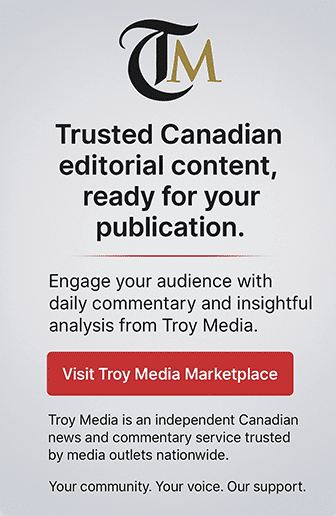Half of Canadians are within $200 of not being able to pay their bills. Can voters afford what Carney is pushing?
By Franco Terrazzano
and Kris Sims
A gnawing question looms over this election campaign: Can I afford this?
Some Canadians are wondering if they can scrape together enough money to fix their car. Others worry about making rent after being laid off from the local steel plant.
According to the financial firm MNP, 50 per cent of Canadians are within $200 of not being able to cover their bills. That makes affordability the ballot-box issue. Simply put: half the country is broke.
As the federal election campaign comes to an end, voters are asking how much the plans of Liberal Leader Mark Carney and Conservative Leader Pierre Poilievre will cost them.
 Franco Terrazzano |
 Kris Sims |
Poilievre promises to cut income taxes, saving a two-income family up to $1,800 a year. Carney pledges a more modest savings of up to $800. Poilievre is also vowing to scrap all carbon taxes, including:
- The visible consumer carbon tax
- The second, buried fuel regulation tax
- The industrial carbon tax on businesses
Carney, meanwhile, has pledged to set the consumer carbon tax rate to zero. But he’s not eliminating carbon taxes—he’s shifting them. The visible tax at the pump would be replaced with a hidden tax on industry.
But Carney won’t say how much that industrial tax will cost.
Steel mills, fertilizer plants and fuel refineries can’t simply absorb those costs. They’ll either pass them on to consumers or move production to the U.S., where there’s no national carbon tax.
Higher fertilizer costs mean higher grocery bills. Higher refinery costs mean gas and diesel will cost more at the pump.
The United Steelworkers local representing Hamilton’s pipe mill workers has endorsed the Conservatives, saying Carney’s carbon tax is costing the industry about $800 million per year and will “decimate” jobs.
Yet carbon taxes remain a cornerstone of Carney’s climate strategy.
“Carbon prices should increase in a gradual and predictable way,” he wrote in his book Value(s).
Carney claims the industrial carbon tax will target businesses, not consumers. But Canadians aren’t buying it. A Leger poll found nearly 70 per cent believe businesses will pass on at least part of the cost to consumers.
They’re right.
When refineries, utilities and factories are taxed, it shows up on gas bills and home heating prices.
We already have a sticker price on some of Carney’s other policies:
- The Parliamentary Budget Officer says Carney’s cap on oil and gas production would cut 40,000 jobs and blow a $20-billion hole in the economy.
- Carney plans to increase CBC funding by $150 million. The former Liberal government heritage minister recommended boosting CBC’s taxpayer funding to $2 billion annually.
- The Liberal ban on new gas-powered vehicles will cost tens of billions. One estimate pegs the cost of grid upgrades alone at up to $300 billion.
And all this comes after the federal government doubled the national debt in under a decade, now at $1.2 trillion.
Interest payments on that debt are now $54 billion a year—more than $1 billion every week.
To bring this home for struggling families: nearly every dollar collected from federal sales taxes now goes to pay interest on that debt. The GST or HST you pay on new tires, groceries or backyard furniture? That’s funding Ottawa’s credit card bill.
And with ongoing deficit spending, interest charges will rise. It’s not hard to guess what happens to taxes.
Canada is broke. Canadians are broke.
Mark Carney must come clean: How much will his policies cost?
Franco Terrazzano is the Federal Director and Kris Sims is the Alberta Director for the Canadian Taxpayers Federation.
Explore more on Federal election, Federal debt and deficit, Federal taxes, Trudeau government
The views, opinions, and positions expressed by our columnists and contributors are solely their own and do not necessarily reflect those of our publication.
Troy Media empowers Canadian community news outlets by providing independent, insightful analysis and commentary. Our mission is to support local media in helping Canadians stay informed and engaged by delivering reliable content that strengthens community connections and deepens understanding across the country.



